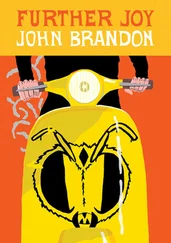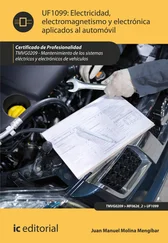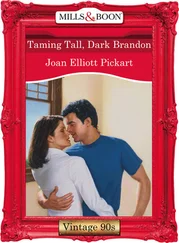She arose and put her eye to the telescope. The town was abandoned, the streets resting. There were wreaths on the lampposts. Eight of them. Dannie had sat out here one day and watched the mayor himself hang them. He had carried his ladder from post to post, had given each wreath a smack before he’d raised it. Dannie was drinking from a bottle of water, and she leaned over the railing and poured some down and it splattered on the desert ground as if on a tabletop. The water wasn’t going to sink in. It was going to sit there like a kitchen spill until the night froze it or the day evaporated it.
She went inside, fetched her driver’s license, and left it out on the kitchen counter so when Arn awoke he would see it and discover her true age. He still thought she was twenty-nine. She sat curled up on the couch and after a while heard Arn bumbling around in the bathroom. She heard the toilet flush. She heard the noise he made when he stretched, heard him getting into some crackers in the kitchen.
“You left your license in here,” he called.
“I did?”
“On the counter.”
“Notice anything?”
“About your license?” Dannie heard him pick it up. “The picture doesn’t do you justice. That I can notice right off. It doesn’t show how your skin is.”
Dannie didn’t answer.
“California,” Arn said, distinctly pronouncing each syllable.
“Look at the date of birth.”
Arn clicked his tongue, thinking, doing math. “I get it, you’re older than you said.”
“By how much?”
“You’re thirty-three.”
“I’ll be thirty-four in three weeks.”
“Shoot,” Arn said. “In that case, I’ve got shopping to do.”
“Let me guess,” said Dannie. She felt hostile and made no effort to keep it out of her voice. “You don’t care. It doesn’t matter how old I am. You’re not mad that I lied. You don’t think any less of me. Everything’s hunky-dory.”
“Well,” Arn said.
“You don’t care, right? What a guy. Guy of the year: Arnold Avery.”
“Should I fly into a rage?” Arn asked. “I can do that, just let me get some coffee first. Let me wake up a little and then I’ll throw some shit around and curse.”
“That might be a nice change,” Dannie said.
There was a long pause then. Both Dannie and Arn tried to stay still, Dannie on the couch and Arn in the kitchen. They hadn’t argued before. Dannie knew that part of her irritation was at herself for ever feeling she needed to lie in the first place. What, she was ashamed? She was afraid some dumb kid would think she was old? It had been an act of impulse, lying, but then she hadn’t been woman enough to admit it and laugh about it and it had grown into something compromising.
Arn shifted his weight on the linoleum.
“Let me see your license,” Dannie said.
“It’s buried at the bottom of one of my bags.”
“Can I see your wallet?”
“Sure, but the license isn’t in there.”
Dannie heard Arn walking to the bedroom, then coming back toward her. He handed her the wallet and sat close on the couch. The wallet smelled like the inside of a new car. There was nothing in it but cash.
“When did you get this?”
“Tuesday.”
“What’d you do before that?”
Arn shrugged. “Pockets.”
“You don’t have an ATM card?”
“My account’s only a savings account.”
“Well, you need a checking account and you need a debit card and also a fucking credit card. If you want anyone to take you seriously.”
Arn looked at Dannie levelly. “I don’t want anyone to take me seriously.”
“You don’t have health insurance, do you?”
“I never do anything dangerous.”
Dannie folded the wallet and rested it on the coffee table and Arn made no move for it. Neither of them said anything for a few minutes and Dannie had no idea if the fight was over and no idea if she wanted it to be.
The coyote had been injured as a pup and had been rescued and rehabilitated by an Albuquerque veterinarian, mostly as a publicity stunt. It was decided the coyote would never survive in the wild with his lack of pack training, and so he was gifted to the high school out in Golden, whose teams were called the Coyotes. The coyote never snapped at anyone; in fact, children often had their pictures taken with him. The coyote lived in a spacious room adjacent to the gymnasium where weight room supplies were stored. The man who cared for the coyote, though not a paid employee, had been given the title of “trainer” by the high school’s athletic department. He did his best to look out for the coyote, but still the animal was stolen each year by the rival high school. The last time, they’d dressed the coyote up like a ballerina and put the pictures in their school’s newspaper.
The wolf hurled himself through the big glass window of the supply room. He disentangled his legs from the flimsy blinds, stepped over an iron bar, and walked steadily toward the coyote, who retreated a step but didn’t cower. The wolf could only imagine the coyote was glad to be put out of his misery. The coyote hadn’t been taught by his elders that a coyote’s only duty was to survive at all cost.
When the wolf tasted the blood, he saw the trainer’s life. The trainer received an amount of money each month that was meant to buy food for the coyote, but instead he pocketed the money and fed the coyote leftovers from the school’s cafeteria, the tangy pizza and country fried steak. The trainer was not mentally deficient, but he knew folks thought he was. His brother had died young. His mother was mean. The trainer was addicted to low-stakes gambling and stayed on his computer all night, blowing the dog food money and blowing an allowance he still drew from his grandmother, who loved him but had mostly lost her mind.
She had been distracted, but had not forgotten her hostilities with Nate. She set up a meeting with the leader of the devoted Shirt of Apes fans, at a location of his choosing, which turned out to be the picnic area of a farmers’ market. The market was open on weekends but this was a Tuesday, so there was no food to be had, no drinks, no one around.
The guy was waiting for Cecelia, and when she walked up he gestured for her to sit down across from him at his picnic table. His sunglasses were crooked. They looked like they were about to fall apart. Cecelia had never seen this guy without his sunglasses on. He had attended the first month of vigils for Soren, she remembered, he and his gang, but they’d disappeared. Cecelia wondered if they’d quit for ideological reasons or because they’d found something better to do. She’d always been intimidated by him, at the Shirt of Apes shows, but the fact that he’d quit the vigils gave her a sense of superiority.
“I have five minutes,” the guy said. He didn’t shake Cecelia’s hand or smile at her.
“That should be sufficient.”
“I have something to say first. I think you’re beautiful.” He spoke hurriedly and with little intonation. “Maybe not now, without the band, but on stage you were beautiful. I’m telling you this as a person who takes a keen interest in beauty. The way you looked with your guitar, wearing that dress shirt…”
Cecelia wasn’t going to blush. She knew not to take the declaration personally.
“Yeah, must’ve been the guitar,” she said.
“You were an exquisite accompaniment. Reggie couldn’t have had a better bandmate.”
“I’ve never known your name.”
“It’s Marc, with a C.”
“Well, Marc, it’s the other band mate I want to talk to you about. The third Ape.”
“Nate,” Marc said. “He was necessary. There wouldn’t have been a band without him. Reggie wouldn’t have started one. You wouldn’t have.”
Читать дальше












